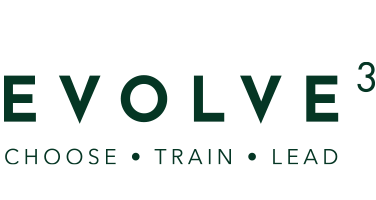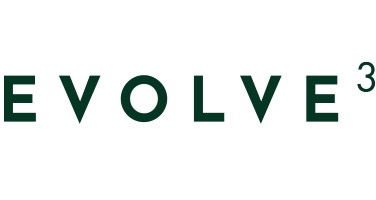
30 Mar How to convert more enquiries into customers
A client recently asked my opinion about a marketing program he was looking at for his venue. Before answering, I asked him what he was doing with the incoming phone calls and emails his venue currently receives. I asked if he measured the success rate of his inbound enquiries, use a sales process, offer add-ons and extras, and offer customers the option to upgrade? He gave me the same answer to every question… “No”, so I asked why he wanted to spend money on marketing when he wasn’t doing all he could with the enquiries he was already receiving.
This is a conversation I often have with new clients who fall into the trap of spending money on new marketing before taking a good look at what they already have and making the most of those opportunities first. I’m not saying that spending on marketing is wrong. It just makes more sense to make more from less, to squeeze every dollar to get the most out of it, and to pick up as much of the low hanging fruit as possible (the easy sales opportunities) before committing time, money and effort to new advertising and marketing. If your current sales process is not being handled efficiently, it makes a lot more sense to fix it before embarking on a new marketing strategy.
Positive attitude and efficient processes are crucial
To me, business success generally comes down to two main things: mindset and process. This is certainly true when improving sales success. You need to apply a positive attitude to handling the enquiry. This means answering the phone call or email in a friendly manner, taking an interest in the caller and their needs, and being positive and helpful. You need to help them through the process of what they came to you for, rather than just trying to sell them something. They want and need your guidance. People often think of sales as ‘flogging stuff to people who don’t need it’. With this mindset they are often scared of presenting a solution to the customer for fear of coming across like a used car salesman. Also they don’t try to close the sale or offer any extras as they think that would be too ‘salesy’. If you knew that your solution would really help your customer, wouldn’t you be perfectly happy to present it?
However, having a great mindset and attitude is not enough. You need to apply efficient processes to make sure that you make the most of the opportunities as they present themselves.
I did a recent study of sales performance in the hospitality Industry, and I found that although most of the sales people were friendly, many didn’t apply a sales process. I ran sales training in cities around Australia to help change that and we significantly improved their sales results.
Keep in mind that inbound phone calls are hot calls. This means they are customers ready to buy, and they have called with the intention of buying from you and solving their problem. These incoming calls are the easiest opportunities to convert into sales and should be the first point of attention when updating your sales efforts. Email enquiries are also hot leads and require the same attention.
I often look at what the best salespeople in hospitality are doing to design the most effective sales training. Rather than trying to adapt a generic sales format, I find that the ‘gold’ is usually already there being used in hotels, restaurants, event centres and wedding venues, but it is being used by a very small percentage of its salespeople (often less than 1%).
Mystery shopping identifies ineffective processes
When I contacted the salespeople as a mystery shop customer, the best salespeople were interested in me and what I was looking for. They asked me great questions to understand my needs and wants, and using the information they had collected from me, they presented the most appropriate solution. They also offered me alternative solutions to choose from, with a range of prices. This made me feel that I was in control of the process as the buyer. They worked collaboratively with me, and we worked together to solve my enquiry. I felt my needs and wants were being considered at every part of the process.
The least effective salespeople responded to my questions but didn’t ask me any. They offered one solution only and did not try to close the sale. So often, I just received a menu or a function pack. It was very rare that anyone did any follow up communication. They achieved very little connection with me, which made it hard to trust them enough to buy from them. Connection and confidence are very important when negotiating with your customers.
Speaking of confidence, I recently contacted a roof plumber about installing a new Colourbond roof on my house. I asked him if he could separate the cost of the guttering from the roof sheets on the written quote. He told me that he could rewrite the quote, but he looked me in the eye and said confidently – “Kevin, what you really need is to replace the roof sheets AND the guttering, as the guttering is worn out and needs replacing”.
The point is that he gave me valid reasons to buy both products and he used the assertive phrase “what you really need” to persuade me to buy the guttering. Even though the guttering cost an extra $3000, he convinced me that he was an industry expert and I could trust his advice. This assertiveness is very important for your function and event customers as it not only builds trust, but it creates an opportunity for extra profit and your client will thank you for making their event the best it can be.
Next time you are communicating with a customer, make sure you know the benefits of buying a specific add-on and the reasons why they need it. Consider training your staff with the benefits of your venue to demonstrate value to the customers. It’s not “salesy” to demonstrate value. You should be doing this to help your customer make an informed choice.
With confidence comes success
In my training sessions, I always look for specific outcomes to be achieved. I need to know that the participants can actually demonstrate the skills they have learned. The best way you can achieve this in your venue, is to discuss the strategies with your staff, and put notes on the wall near their phone and computer so they follow the process the same way each time they receive and enquiry. Start by testing a new strategy and track whether it works for you, e.g. changing the way your staff answer the phone has a major effect on how customers perceive your business and I have seen this single improvement double sales.
The phone answer is like a verbal handshake. You learn a lot about a person quickly by the way they shake your hand, and a poor phone answer can be like receiving a ‘wet fish’ limp handshake. It doesn’t instill confidence in the person you are talking to.
Effective phone technique
I often mystery shop venues by phone and I hear many different versions of the phone answer. Some versions have more impact than others. For example:
Phone answer 1
“Hello”
This type of phone answer tells the caller nothing about the venue they have phoned or the person answering the call.
Phone answer 2
“Brett Smith Speaking”
Although this answer tells the caller who is on the line, it doesn’t confirm who the venue is. Also, callers remember that the last thing you said. In this case there is no value in remembering the word “speaking”. You want them to remember your name. For me, learning to drop the word “speaking” proved to be a challenge as I was so used to saying it. However, perseverance helped me and I now build rapport instantly with my customers.
Phone answer 3
“Thank you for calling Southgate Inn, This is Kevin”
This answer identifies the venue and the person answering the call. It works for four reasons:
- It tells the caller their call is appreciated
- It identifies the venue
- It identifies the person
- The phrase “this is Kevin” prompts the caller to tell you their name which builds instant rapport
Build your business approach to sales
The phone answer is a great starting point for improvement. You could also develop and implement new phrases to:
- Close the sale
- Sell add-ons and extras
- Ask more effective questions to diagnose the customer’s needs
Using tailored email templates is also important as many initial enquiries start that way. The key is to get them onto the phone as quickly as possible and the best place to close the sale is face to face at your venue. All of my sales training includes phone skills, email and face to face selling skills for this reason.
Once you have mastered one new strategy, try another one. You don’t have to achieve complete success all at one time. Success comes from introducing a number of new achievable sales strategies one at a time, over time. One of my clients made the mistake of trying to introduce too many strategies at once. When their office got busy, they dropped all of their new sales skills, as there was too much to think about. You need to check the strategies have been implemented permanently. Each time you introduce a new strategy, you will definitely see improvement in your sales figures.
About the author
Kevin Kosky is a sales communication expert with 18 years’ experience in providing guidance and training to venues around Australia and overseas. He helps venues improve their sales and customer relationships by converting more conversations into customers. To learn more, consider attending Evolve3’s Functions & Events Sales Masterclass with Kevin.



